We already know that there are some big changes in store for gaming’s biggest turn-based strategy series when Civilization 7 launches in early 2025. However the new gameplay might affect the storied franchise, we can still be certain that there will be a massive selection of historical civilizations to choose from.
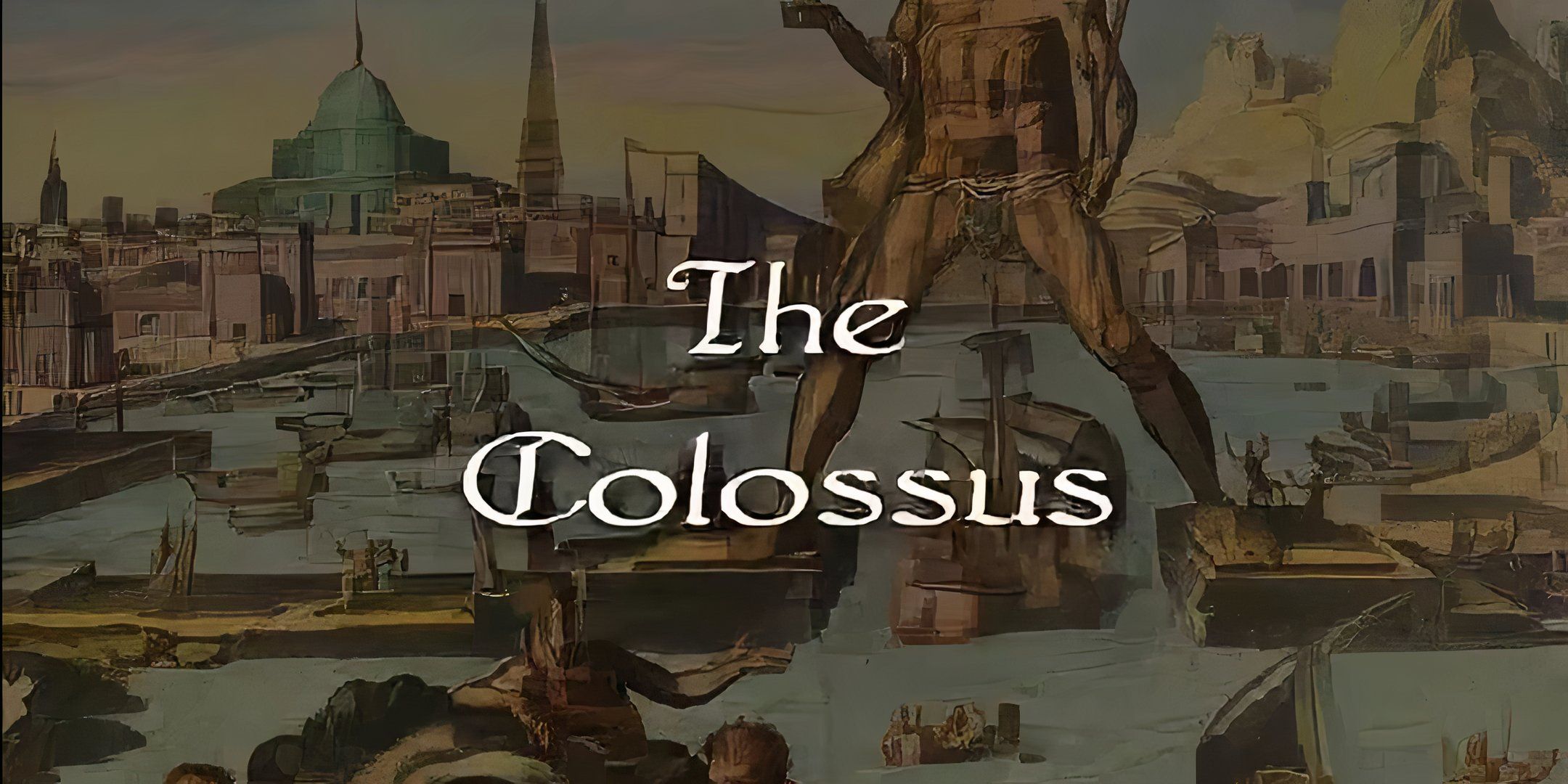
Related
Civilization 7 Needs To Bring Back Civilization 2’s Wonder Videos Immediately
Wonders are a staple of Civ, but they’ve never been done better than in Civilization 2.
With mechanics adapted from recent competitors like Humankind, Civ 7 models the growth of cultures as civilizations evolve from one nation to the next throughout the ages. Here are all the civs and leaders that have been revealed so far, and what we know about them.
Some Civilizations and Leaders have only been confirmed to be in the game, but no further information has been given about their abilities. This list only includes entries that have been verifiably confirmed by official sources, such as Firaxis developer diaries or the 2K Games website; anything else has been left off for the time being.
Updated on November 1, 2024: The full Civilization information for the Norman newcomers has been released, as has the profile for Civilization’s newest leader. While Machiavelli never ruled over a nation himself, he certainly had a lot to say on the subject.
Abbasid
Exploration Age Civilization
Historically, the Abbasid Caliphate was the center of the Golden Age of Islam, and its capital moved from Baghdad to Cairo in the 13th century CE. They’ll make heavy use of Specialists who, once the Abbasids hit their stride, will have lower maintenance costs and will be able to contribute Science regardless of their profession.
The listed abilities for the Abbasids also hint at a divide between Rural and Urban populations in cities, which could mean new challenges and opportunities in managing your empire’s growth!
Aksum
Antiquity Age Civilization
Aksum was an ancient kingdom in what is now Ethiopia. They were considered a great power on the ancient world, alongside Persia, Rome, and China, and their comparatively early adoption of Christianity gave rise to legends of the Kingdom of Prester John centuries later.
Aksum was historically a trade power thanks to their easy access to the Indian Ocean, and now that they’ve been fully revealed, we can see that their legacy is well-preserved in Civ 7. They get bonuses for building on the coast, and their unique trade ship, the Tankwa, can’t be pillaged. If you like to ply the sea for gold, Aksum will be a great starting pick.
Ashoka
Leader
Ashoka has been featured in previous Civilization games, it’s been a while – this is his first appearance since Civ 4. The grandson of Chandragupta Maurya, who made his own Civ debut in Civilization 6, Ashoka is known equally as a fearsome military leader and an important advocate for the spread of Buddhism in the third century BCE.
In Civilization 7, Ashoka will have two personas to represent his dual roles in history. As the World Conqueror, he gets extra Production in cities that he conquered rather than founded, and excess Happiness in cities is converted into Production regardless of how Ashoka came to rule them. When he turns his focus inward as the World Renouncer, all of Ashoka’s buildings generate extra Happiness for being near Improvements, and excess Happiness is converted to Food, helping his cities flourish and grow.
Augustus
Leader
The nephew of Julius Caesar, Augustus was the first Roman Emperor after eliminating his rivals in a series of wars after his uncle’s famous assassination. His last appearance in the Civilization series was in Civ 5, where he focused on building an efficient empire around a strong capital.
Augustus’ focus on the glory of Rome remains intact, as his Imperium Maius ability improves the Production in his Capital for every Town he has. His Towns aren’t left out in the cold, though, as he gets more Gold toward purchasing buildings in them, and can put that Gold toward Culture Buildings.
Benjamin Franklin
Leader
Several US Presidents have been featured as American leaders in Civilization over the years, but Ben Franklin is the first non-President in that role. We don’t know much more about his place in the game beyond that, but given that in real life he was an inventor and an ambassador, he’s likely to focus on Science and Diplomacy.
Buganda
Modern Age Civilization
Buganda is a traditional monarchy within the modern nation of Uganda. It was abolished shortly after Uganda gained its independence from Great Britain, but restored in 1993. Civilization hasn’t typically featured modern nations that aren’t major powers, so how they approach smaller countries will be something to watch.
We know that the Abbasids can progress to Buganda in the Modern Age, but no gameplay has been revealed for them at this time.
Chola India
Exploration Age Civilization
The Chola Empire ruled over southern and eastern India from the ninth to thirteenth centuries CE, controlling huge swathes of coastline and protecting their trade with the largest navy in the region at the time. They invested their wealth in arts and literature, building temples and statues that still stand today.
As we predicted, the Chola Empire focuses on naval supremacy and trade, using their diplomatic prowess to bring in Gold from across the world with improved trade routes.
Confucius
Leader
Like Ben Franklin, Confucius is famous as a thinker rather than a head of state, so we can probably expect many more Leaders in the broader sense of the term in Civilization 7. The grandfather of Chinese philosophy, Confucius’ teachings would go on to influence thought and culture across East Asia for centuries.
Confucius focuses on population growth, Science and Specialists, making – predictably – an ideal fit for Han China. Given how powerful Science has historically been in the Civ series, the great sage should have plenty to offer other empires as well.
Egypt
Antiquity Age Civilization
There was never any question that Pharaonic Egypt was going to be in Civilization 7. Constructing Wonders, waging war, building a civilization to stand the test of time – that was Egypt’s whole thing!
Egypt in Civ 7 benefits from building on rivers near deserts, and building Wonders early. They have access to the Tjaty, a unique civilian unit similar to Gran Colombia’s Comandante General in Civilization 6. Each named Tjaty offers a different bonus, but can only be activated on a Wonder – get those Pyramids built!
French Empire
Modern Age
France has gone through a lot of different iterations in its time, so Napoleon’s Empire isn’t likely to be the only version of France that we see in Civilization 7. It’s certain to be the most military-focused, though, considering that the historical equivalent nearly conquered all of Europe. Given how powerful you’re likely to be in the late game, you might just succeed where Napoleon failed – just think twice before invading Russia in winter.
Greece
Antiquity Age Civilization
Ancient Greece is another culture that’s been in every Civilization game, and this time around they’re keeping the Culture and Diplomacy approach that Pericles had in Civ 6. Their unique unit, the Hoplite, will be familiar to returning players, as it still gets a bonus for having other Hoplites adjacent. Greece will also be able to recruit Logioi (singular Logios), historical philosophers and poets with unique effects.
Based on their abilities, it looks like Greece will have a much easier time working with Civ 7’s as-yet-unrevealed diplomacy system. Time will tell whether the Delian League stands united through all ages.
Han China
Antiquity Age Civilization
The Han Dynasty rule over China for four centuries, eventually giving way to the famous Three Kingdoms period. Considered a golden age, it’s what you probably think of when the words “Ancient China” are brought up.
In Civ 7, Han China focuses on population growth and Science, letting you get an early advantage by building tall. With the Great Wall and the return of the mighty Chu-Ko-Nu crossbows after taking a game off, enemies will need to think twice before disturbing the Middle Kingdom.
Hatshepsut
Leader
Hatshepsut ruled over Egypt during a time of relative peace and prosperity, though her jealous successors attempted to erase her from the historical record. We know from Dev Diaries that she can lead Egypt, Aksum, or a third, as-yet-unannounced Antiquity Civilization.
Hatshepsut gets extra Production towards Buildings and Wonders in cities, provided they’re adjacent to a navigable river. She also gets Culture for every imported resource, encouraging her to maintain good relations with other empires and trade with them. All in all, she seems similar to Civ 6’s Cleopatra, but more focused.
Himiko
Leader
Himiko, the Queen of Yamatai, is mentioned in Chinese histories about relations with Japan, but not in Japanese records. It’s possible that she is draw from legends of Empress Jingu, whose tales come from the same period. Whatever her origin, Himiko is revered as a legendary figure in Japanese history, and rises from an optional Hero in Civ 6 to a full-blown Leader in Civilization 7.
We know from the Dev Diaries that Himiko always has the option to select Meiji Japan as her Modern Age Civilization.
Khmer
Antiquity Age Civilization
The Khmer Empire ruled what is now Cambodia, building temple cities including Angkor Wat. They were a powerful choice in Civilization 6 thanks to their Grand Barays, and their Civ 7 incarnation looks to be just as viable, albeit in a different manner.
Civ 7’s Khmer are focused on settling along rivers without any of the usual drawbacks. They can build Urban Tiles along rivers without cutting off that tile’s natural yield, and once they progress along their Civic Tree those same Urban Tiles won’t be damaged by floods.
Machiavelli
Leader
Niccolo Machiavelli was a politician in Renaissance Florence, best known for his book The Prince. While historians argue whether the book was an honest expression of his views or a satire meant to paint his enemies as tyrants, the end result has been that Machiavelli’s name is synonymous with ruthlessness.
In-game, Machiavelli is dangerous to have as a friend, but more dangerous to have as an enemy. He can declare wars without the usual requirements, and can levy the militaries of City-States even if he isn’t their suzerain. Perhaps most devious of all, he gets Gold when a diplomatic proposal he makes is accepted… but more Gold if it’s rejected. Expect to see Machiavelli players make ludicrous, one-sided deals, knowing they’ll still come out ahead either way.
Maurya India
Antiquity Age Civilization
The Maurya Empire was the first power to unite large swaths of the Indian subcontinent, around the same time Alexander’s conquests were happening to the west. Two Maurayn emperors, Chadragupta and Ashoka, have made their presence known in previous Civilization games, and we already know that Ashoka is returning in Civ 7.
According to the revealed info on the Maurya in-game, they allow for happy, prosperous cities that produce extra Science and Culture, supporting the troops on the front line as they knock over fortifications with Purabhettarah (town-breaker) war elephants
Maya
Antiquity Age Civilization
The Mayans predated the Aztecs and were foundational to Mesoamerican culture, and there are still millions of indigenous Maya alive today. Their advances in astronomy and mathematics have always been reflected in Civilization as Science bonuses, and the same is true in Civ 7.
In Civilization 6, Maya players tended toward isolationism, and the new Jaguar Slayer unit should make other empires think twice before invading. The Jaguar Slayer can trap tiles, causing them to damage enemy units and force them to end their movement for the turn, potentially setting up an ambushed by Hul’che, a returning ranged unit from the previous game.
Meiji Japan
Modern Age Civilization
The Meiji Era marked the end of the Tokugawa Shogunate and the restoration of the Emperor as the de facto ruler of Japan. Breaking centuries of isolation, Japan quickly industrialized, establishing itself as a modern empire within decades.
We only know that Meiji Japan – likely distinct in-game from other possible periods in Japanese history like Edo – is in the game because it was mentioned as an option for Himiko in the Modern Era. It will likely be focused on Production and Science, possibly as a means for players who have fallen behind on the tech tree to catch up and surpass their rivals.
Mississippians
Antiquity Age Civilization
The Mississippians, as their name implies, developed their culture along the Mississippi River and built impressive mound cities. Previously relegated to City-State status represented by Cahokia in earlier Civ titles, the Mississippians are now a fully-playable nation in Civ 7!
The Mississippians will have multiple ways to get extra Food and Gold from their resources, especially once they get their trade routes set up. If you like to plan your early settlements based on the availability of goods on the map, they could be the pick for you.
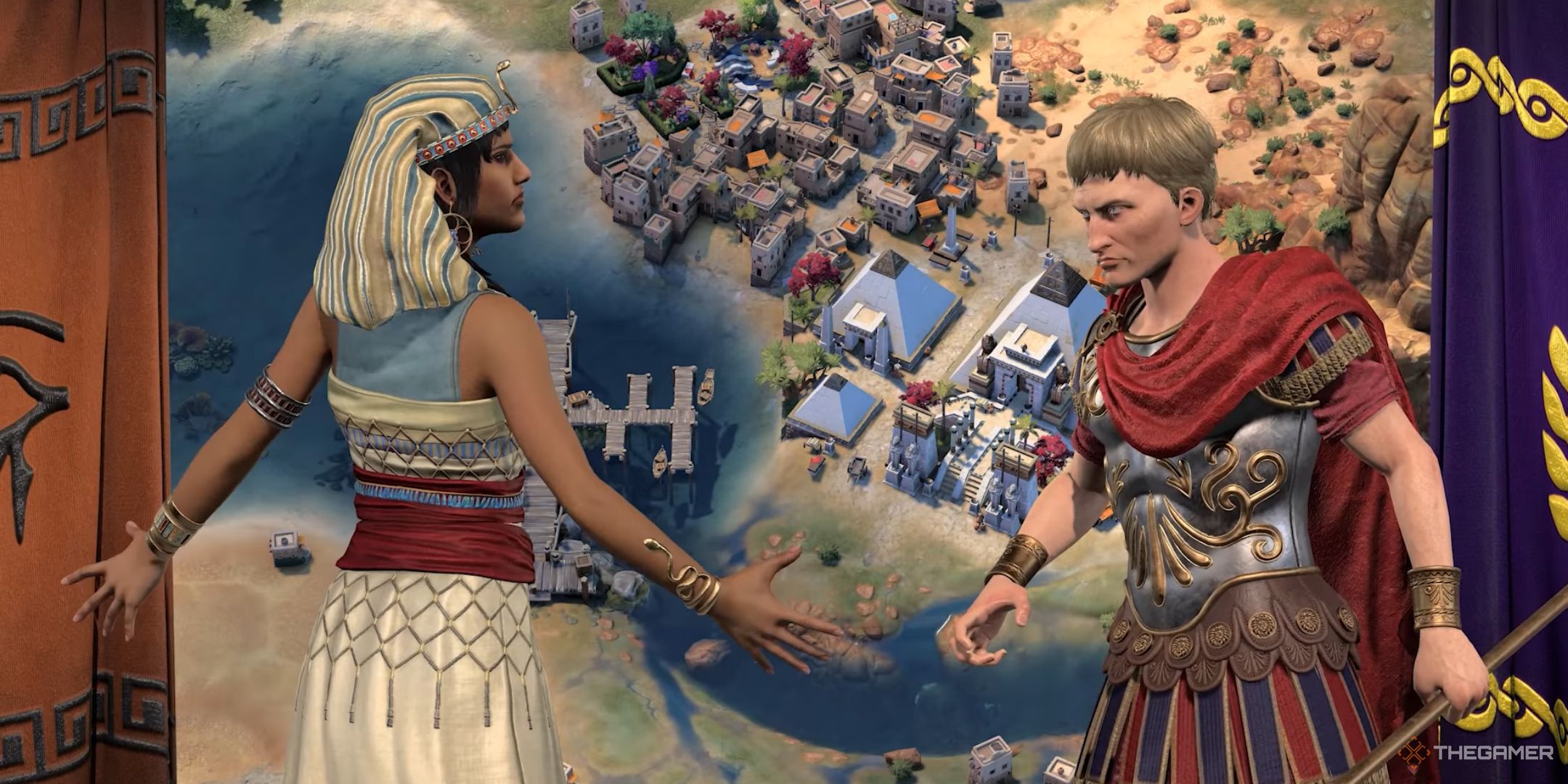

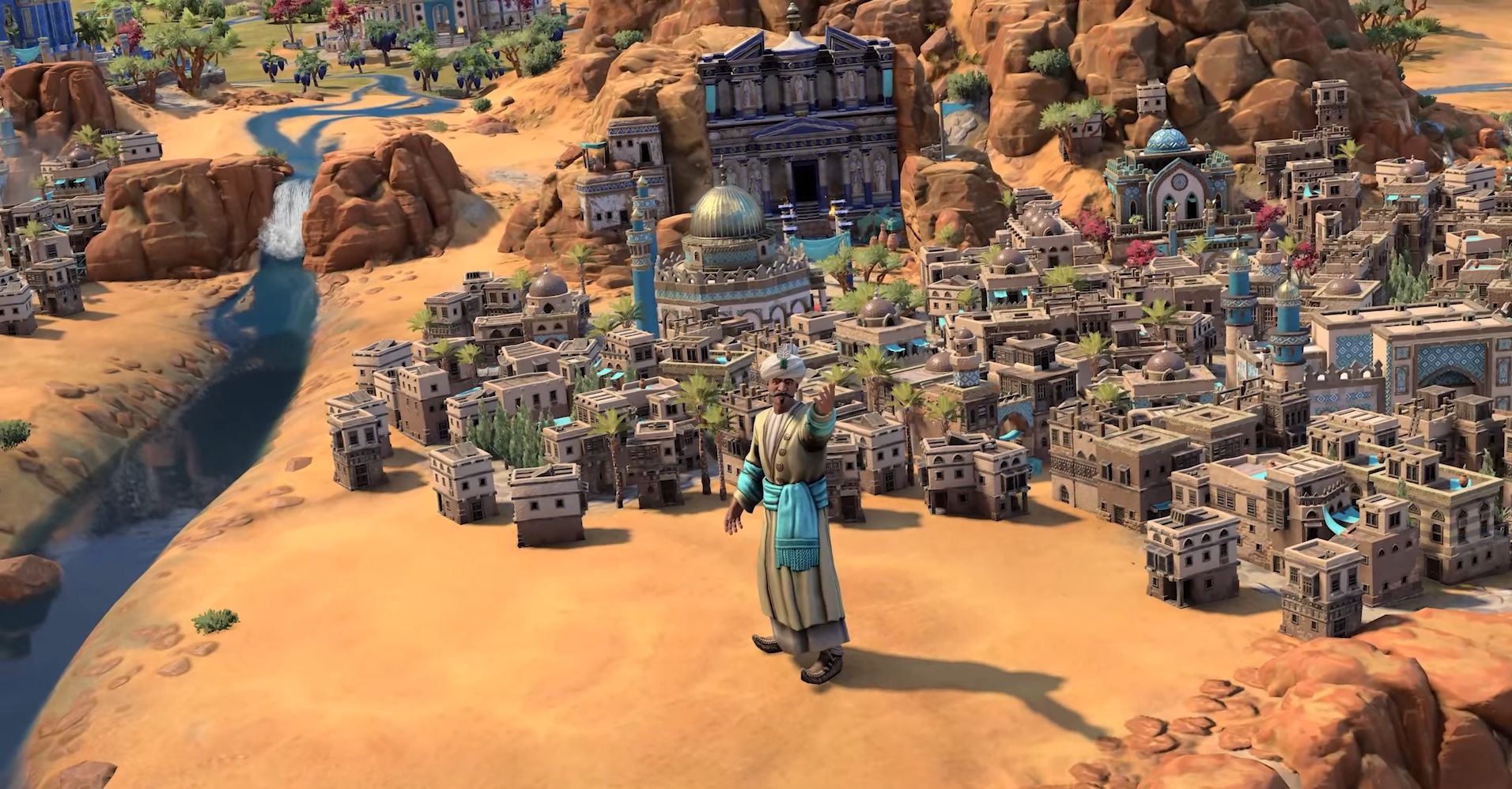
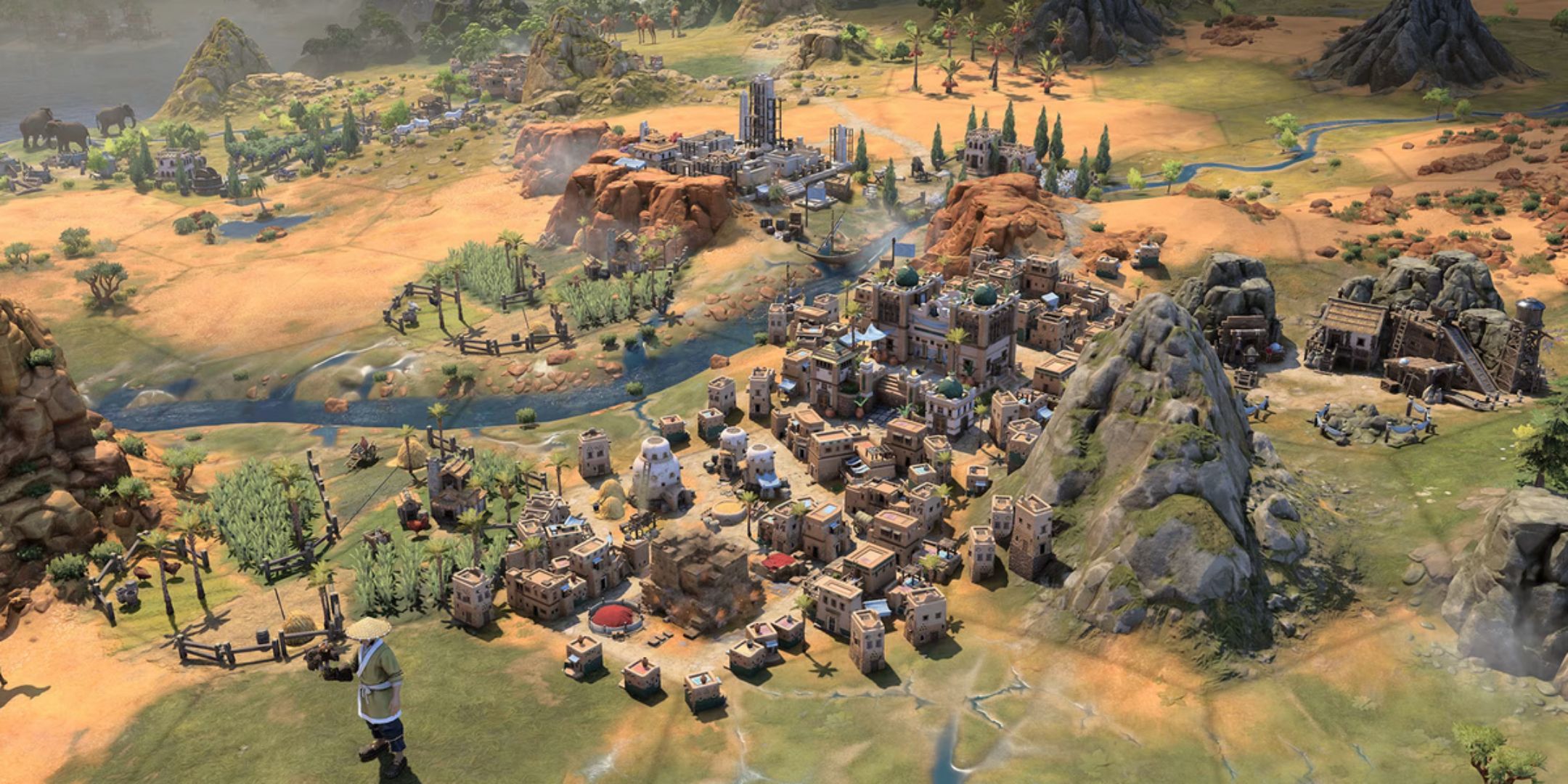
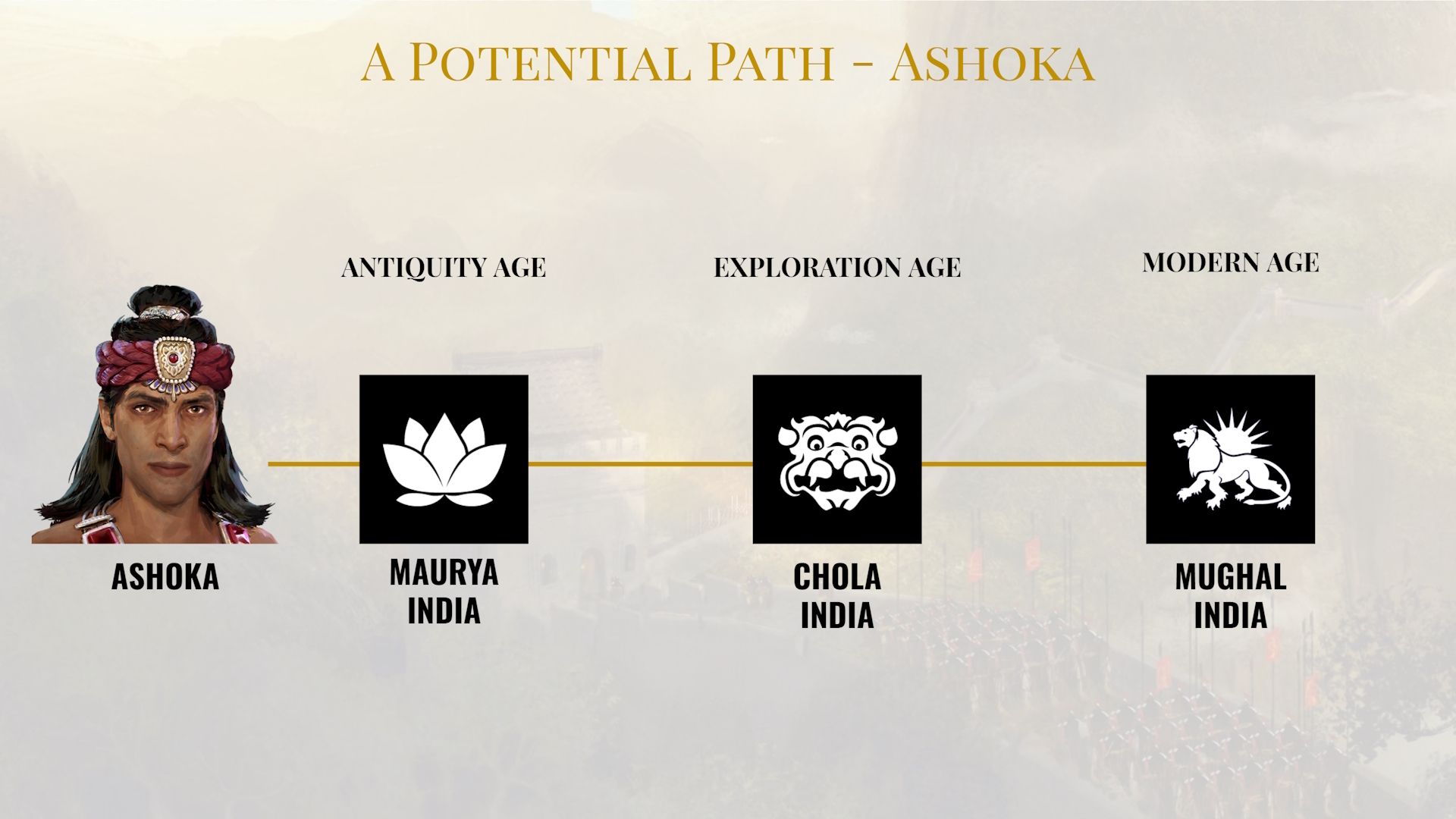
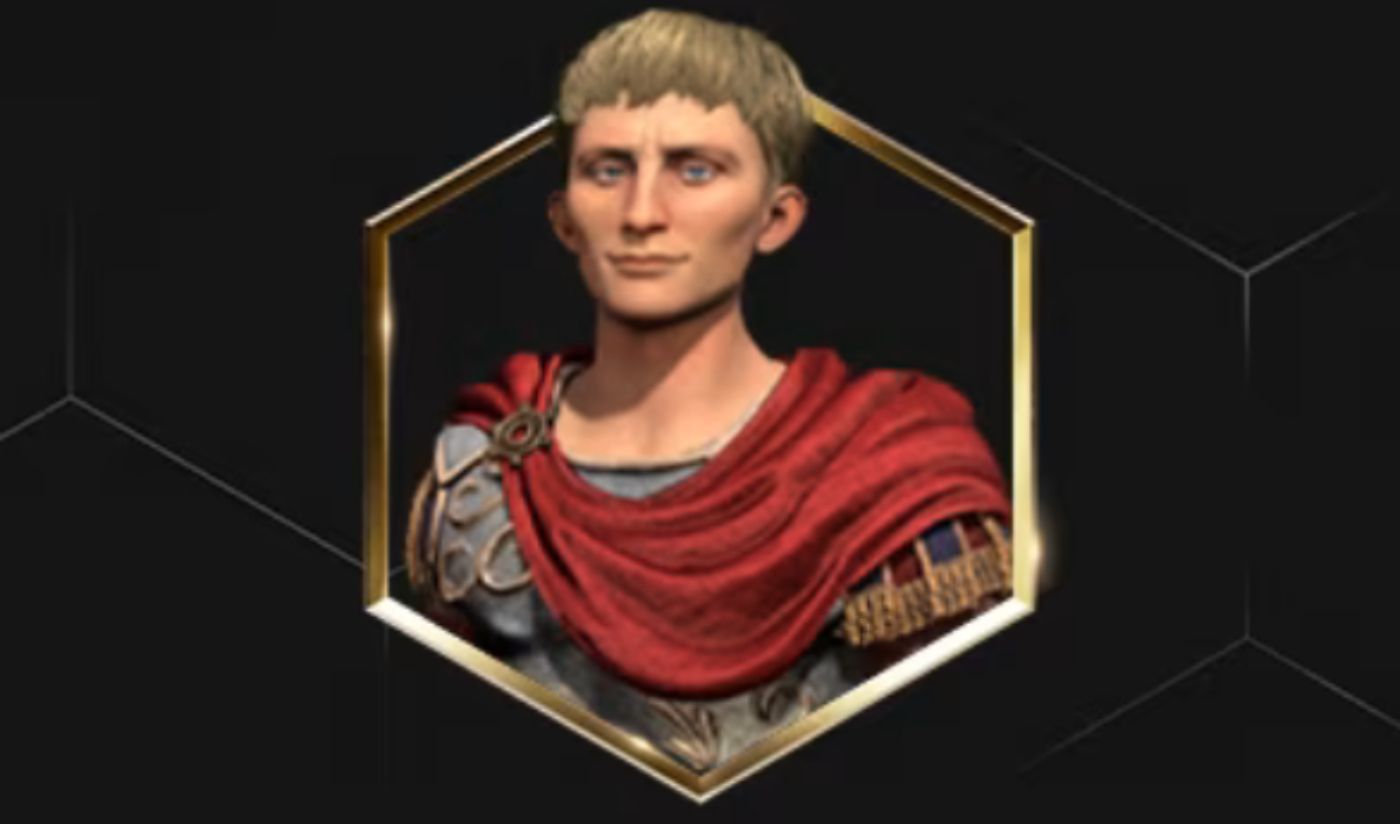
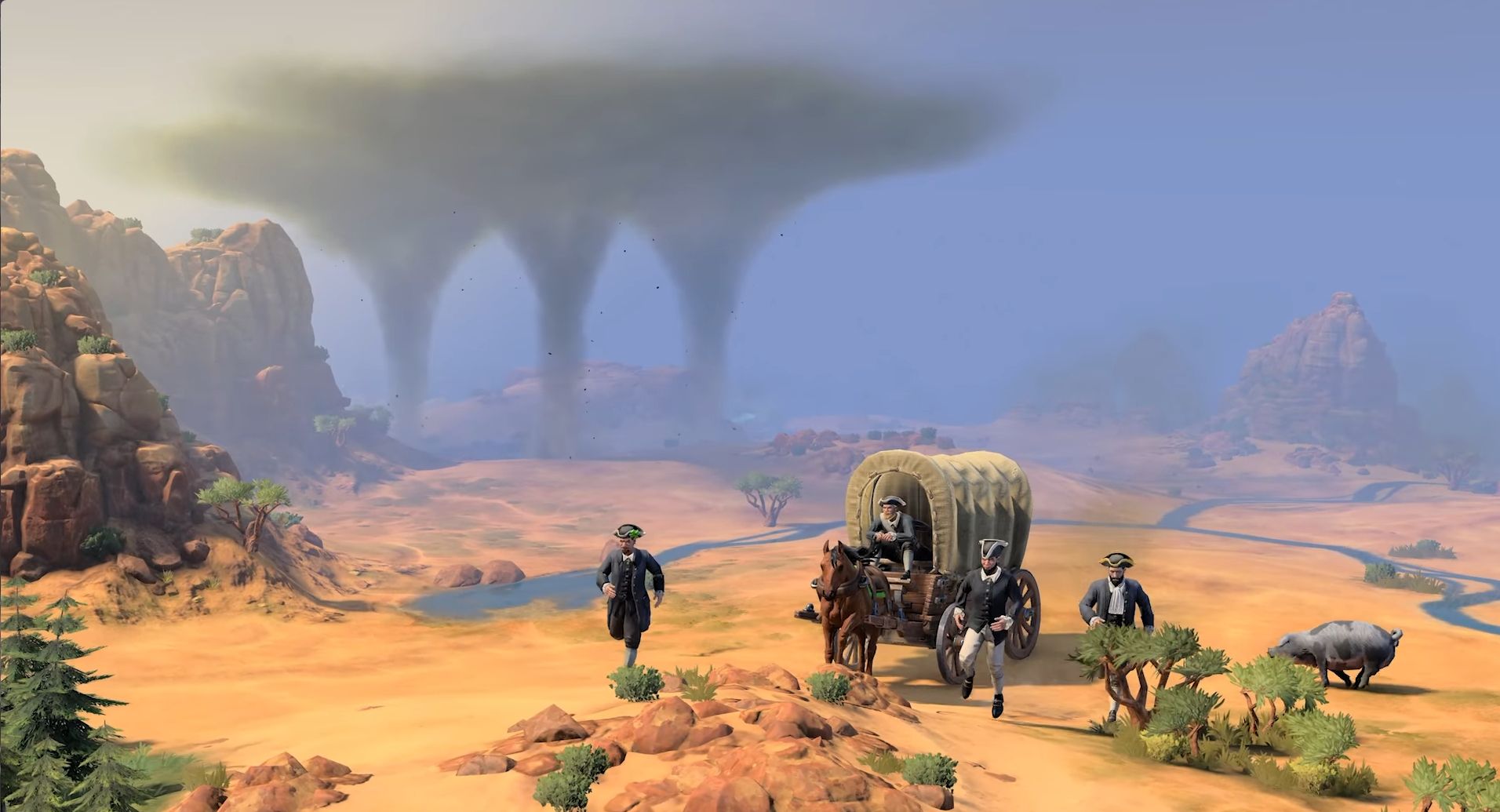
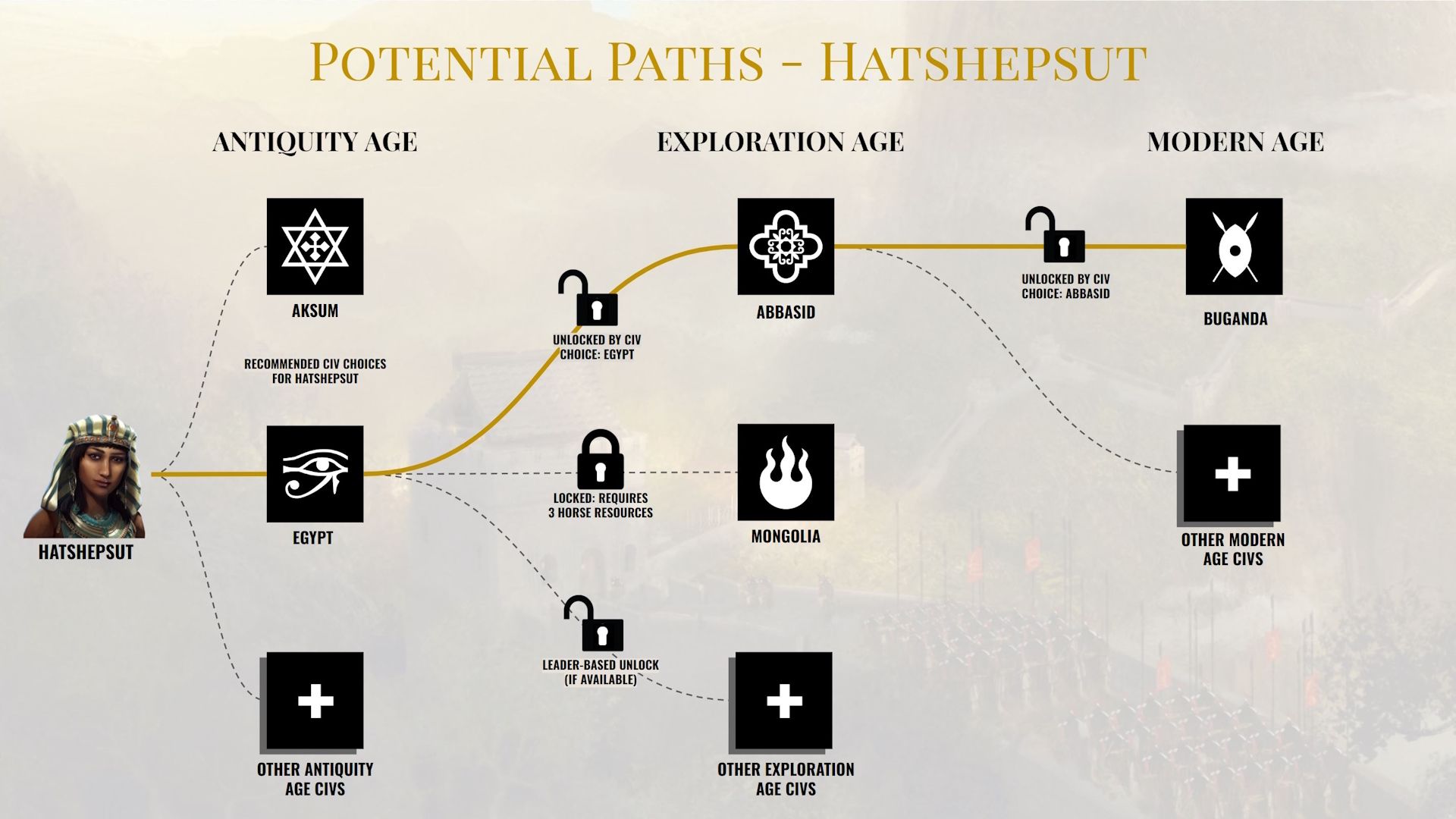
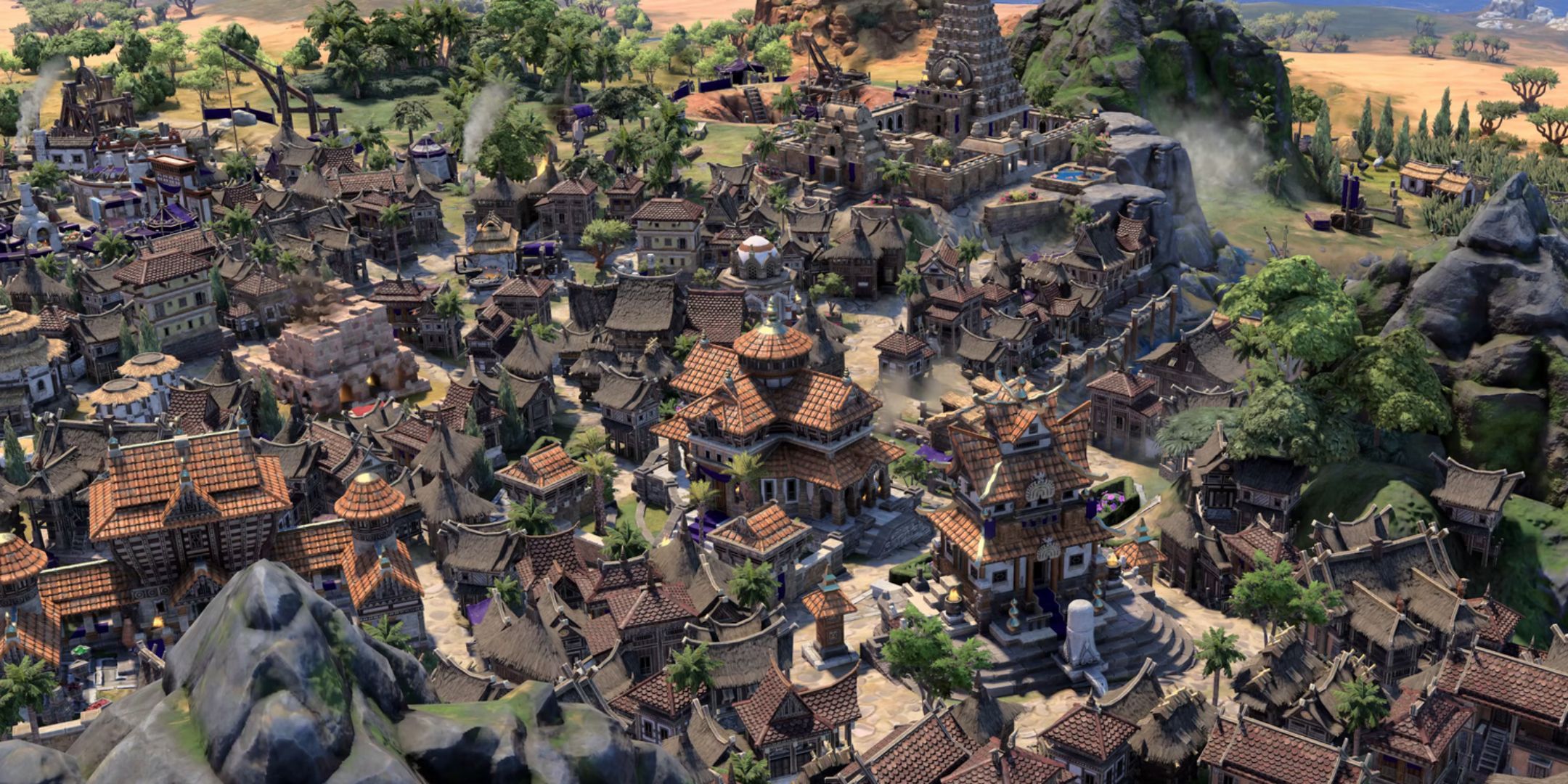
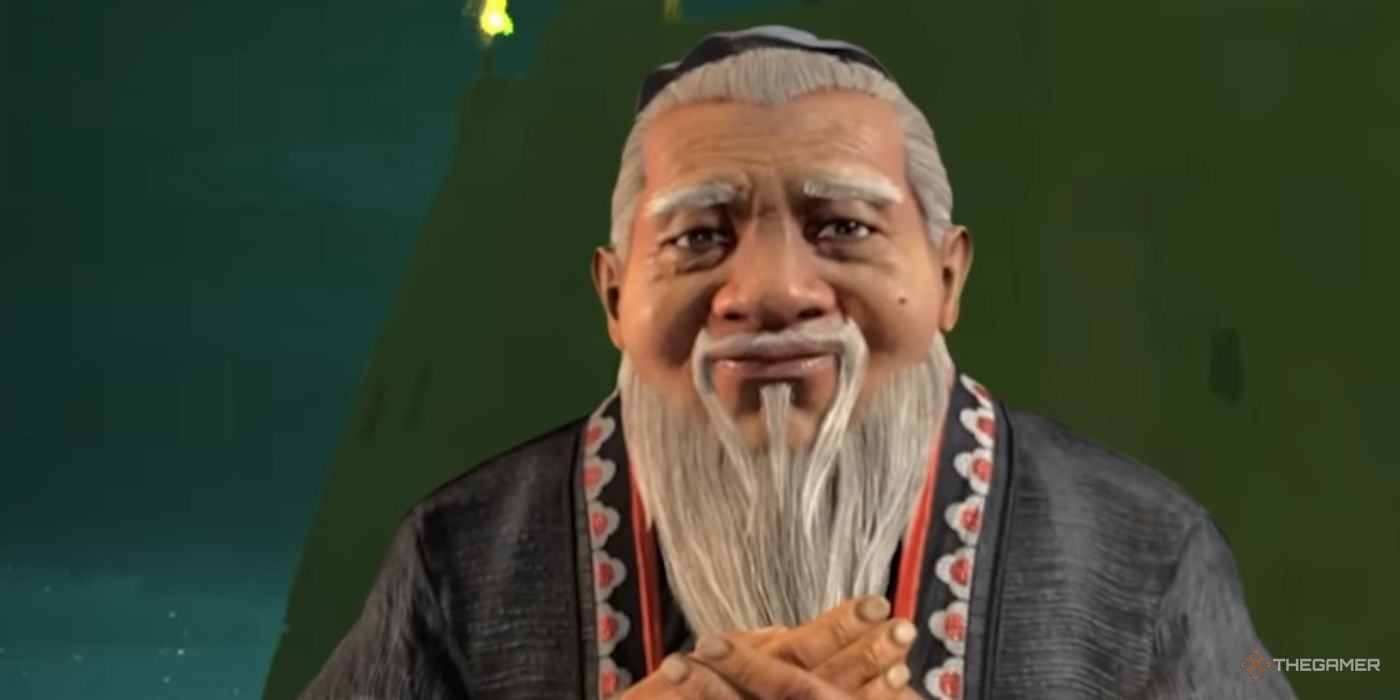
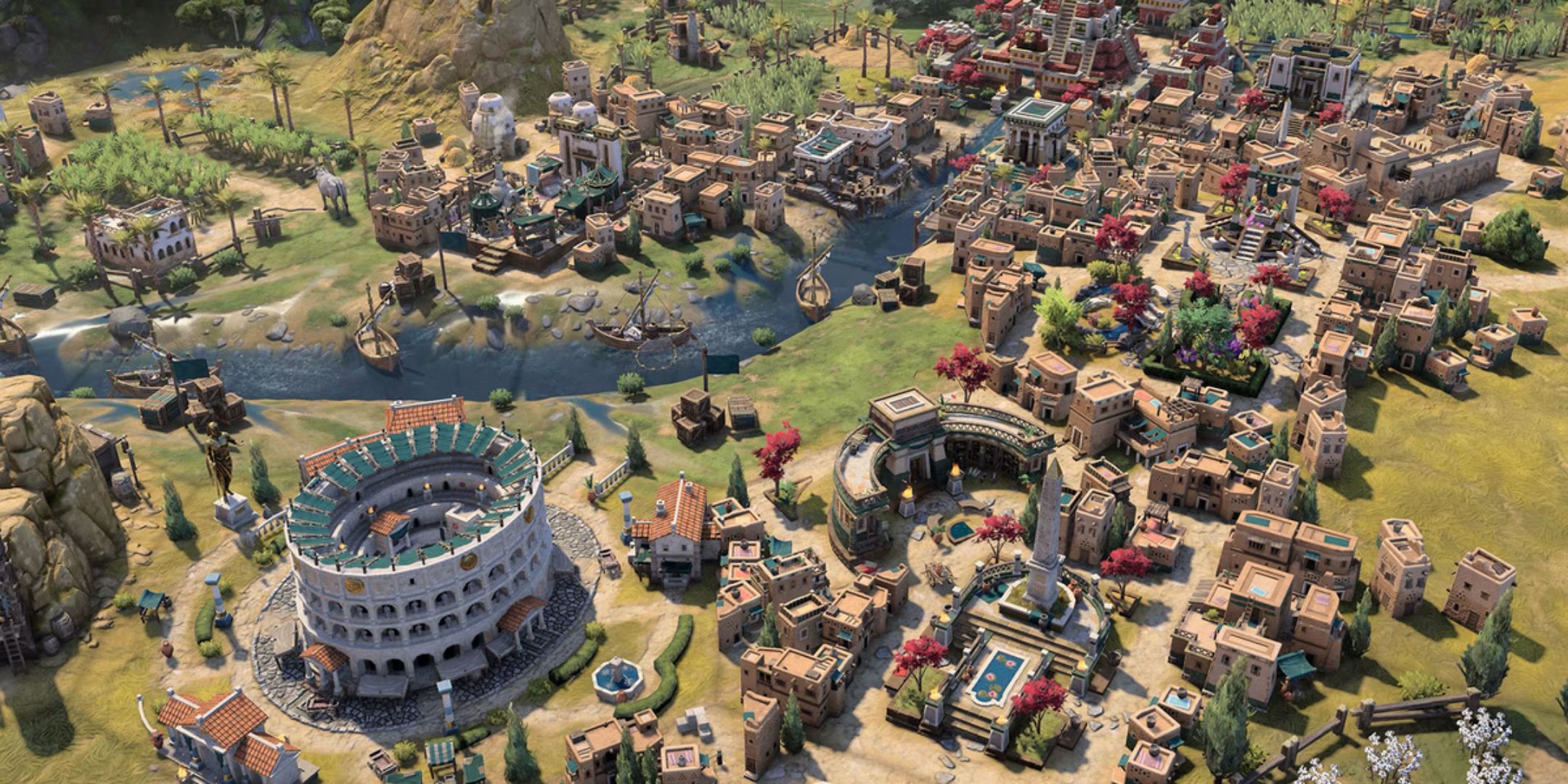
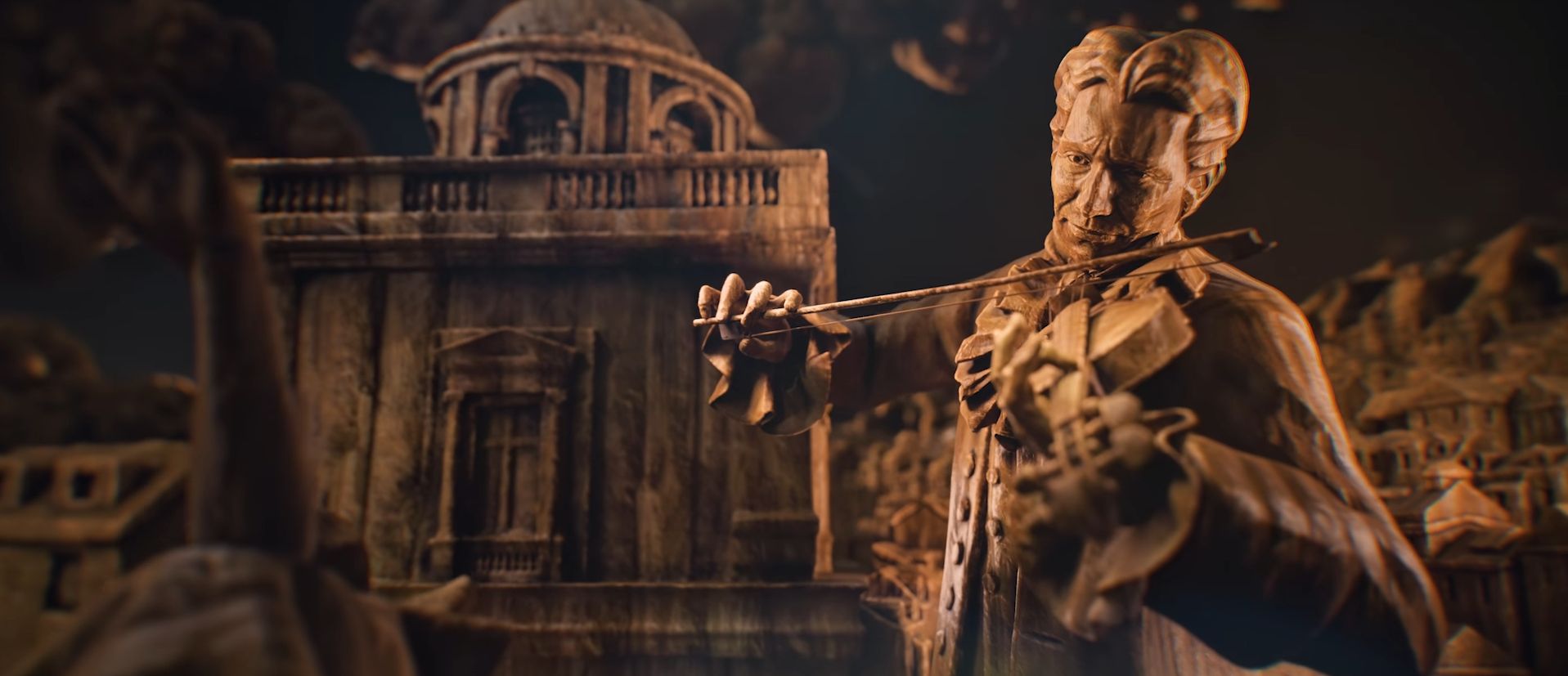
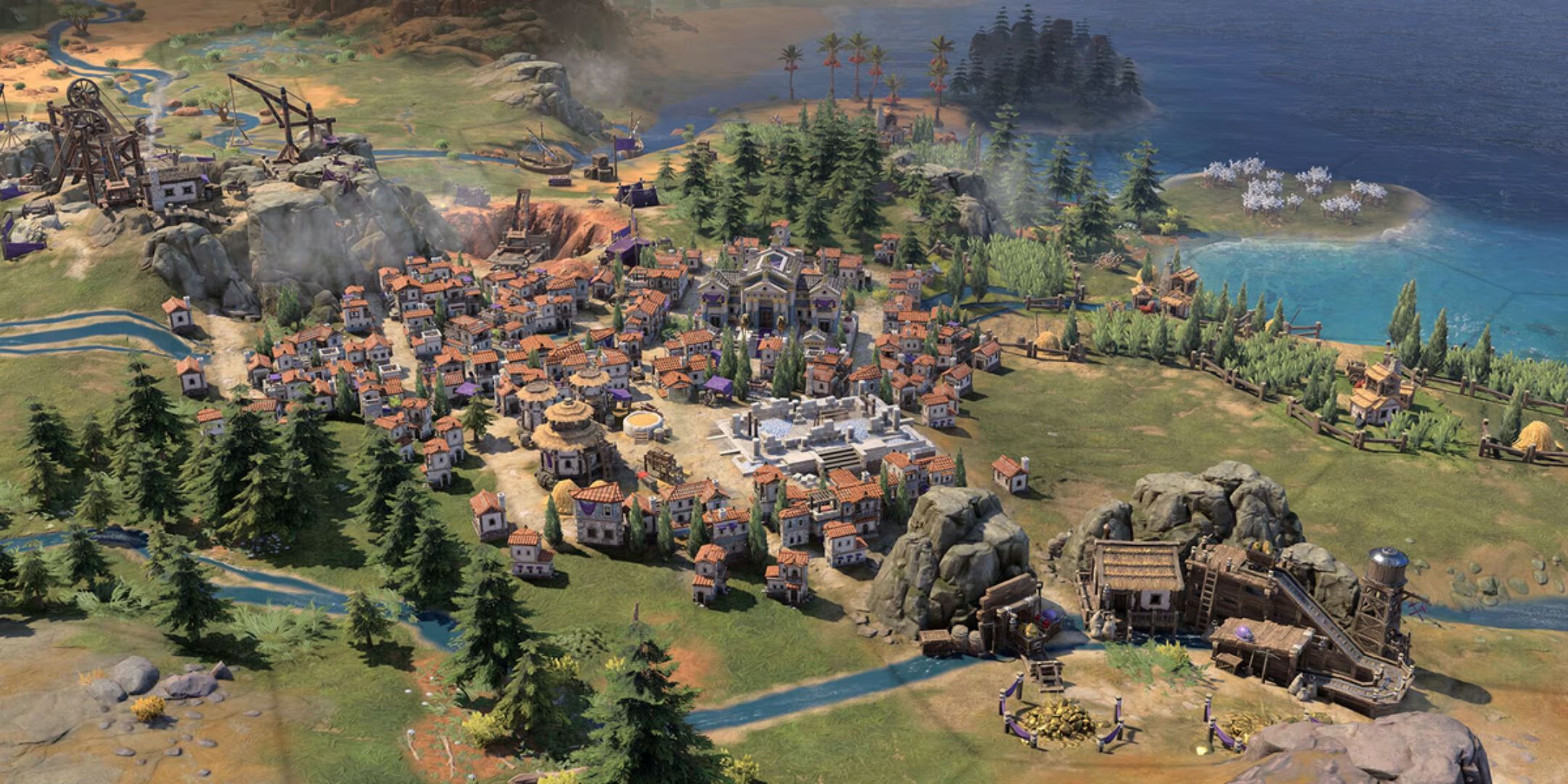
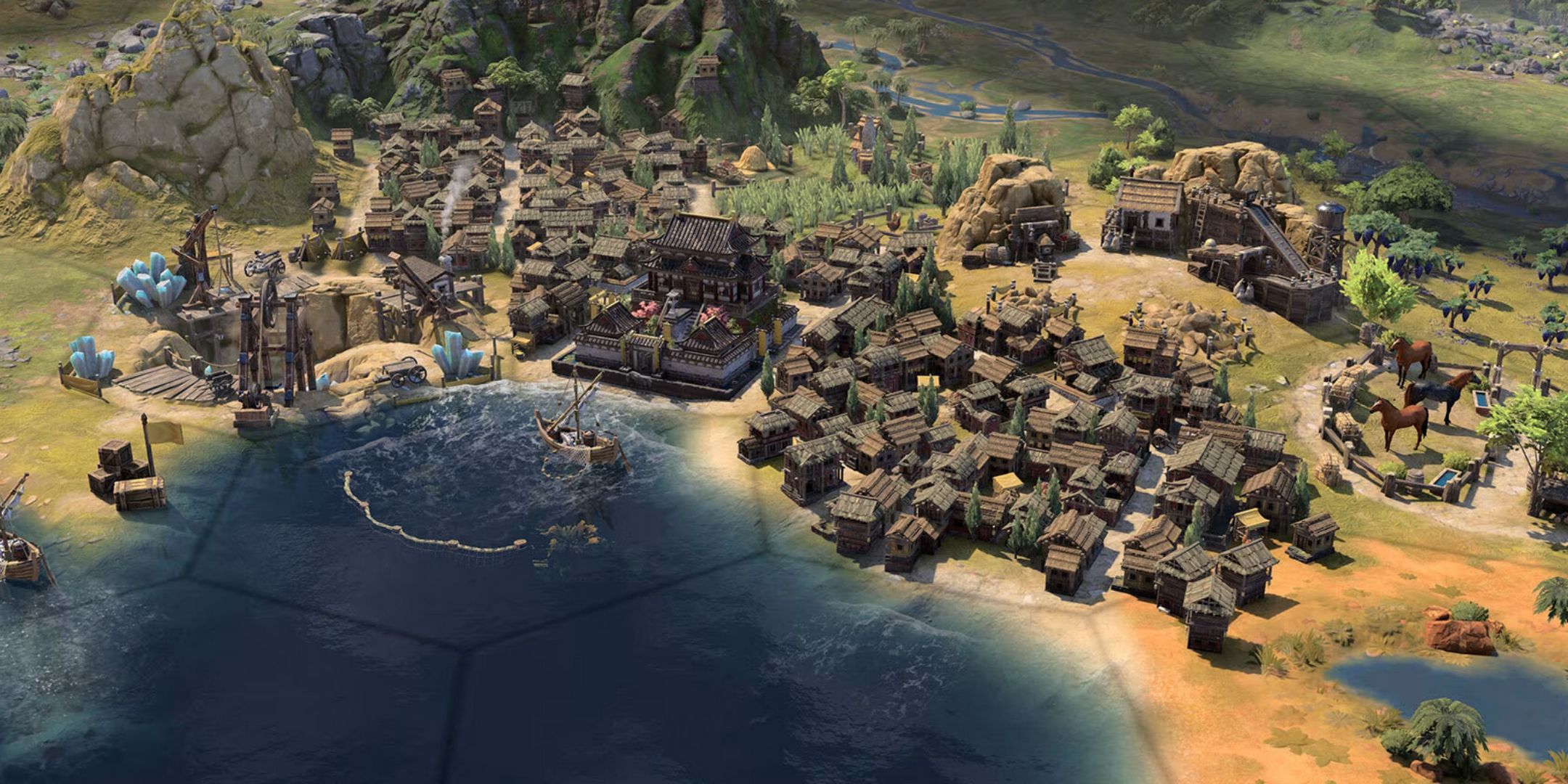
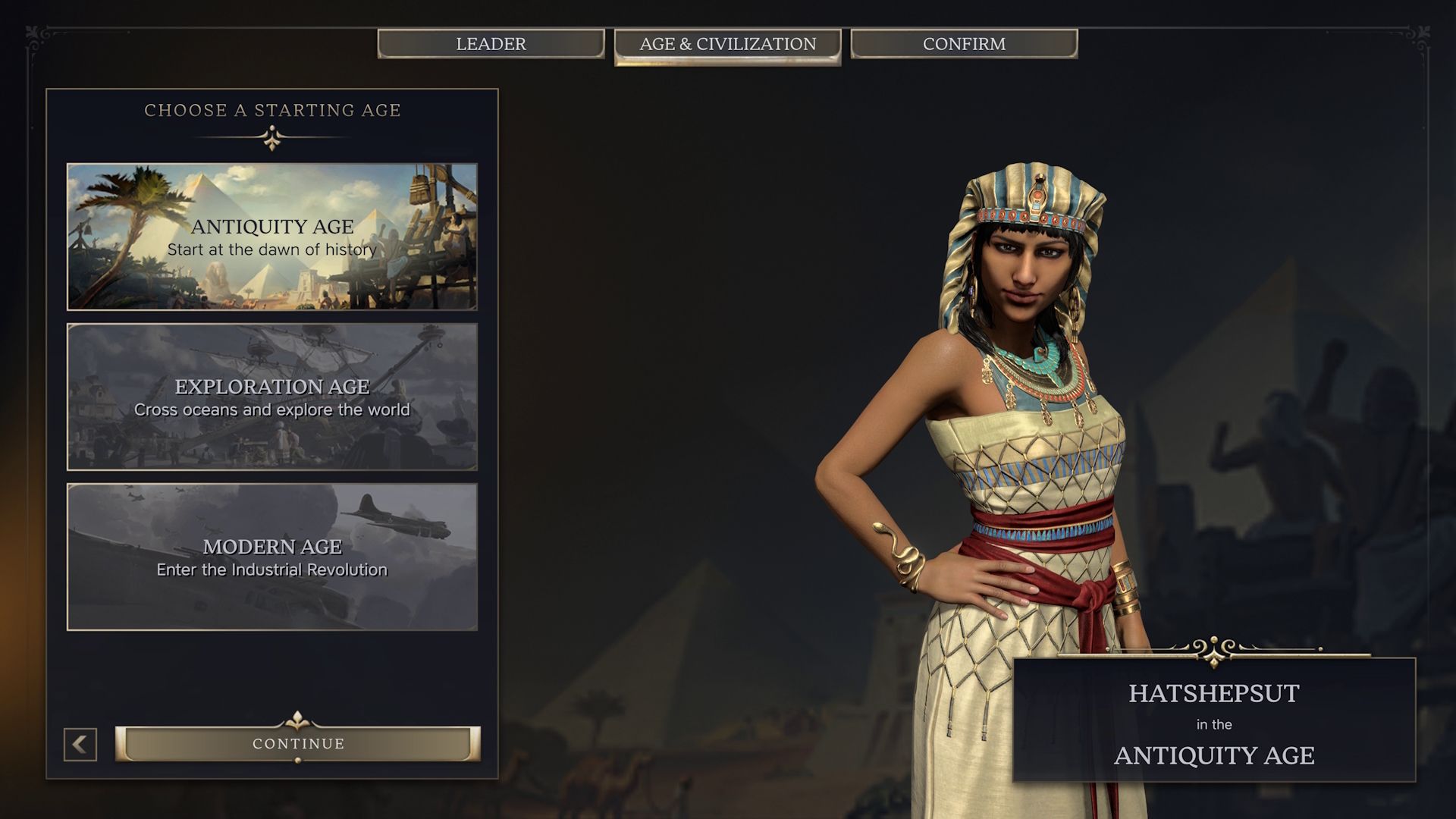
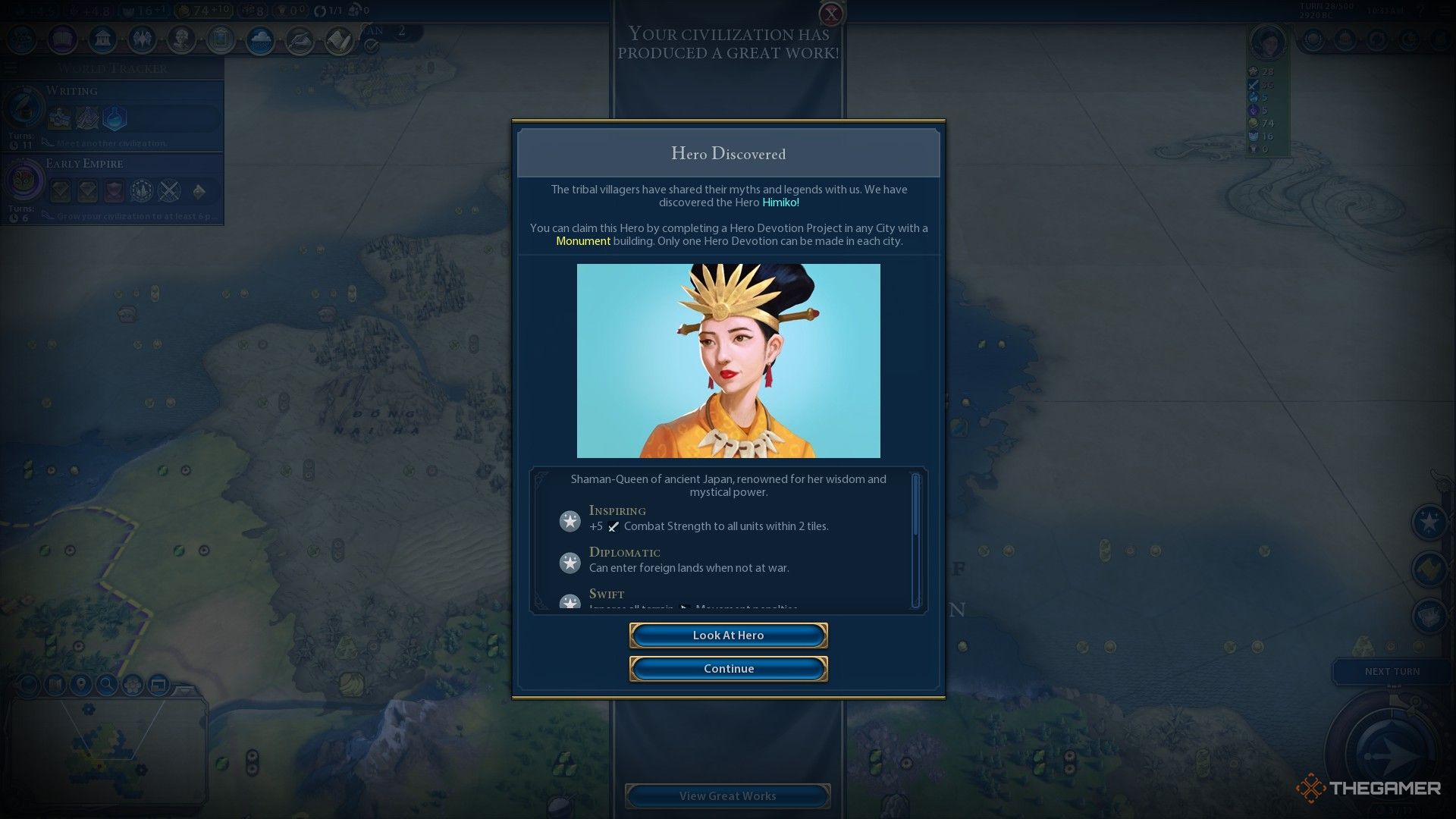
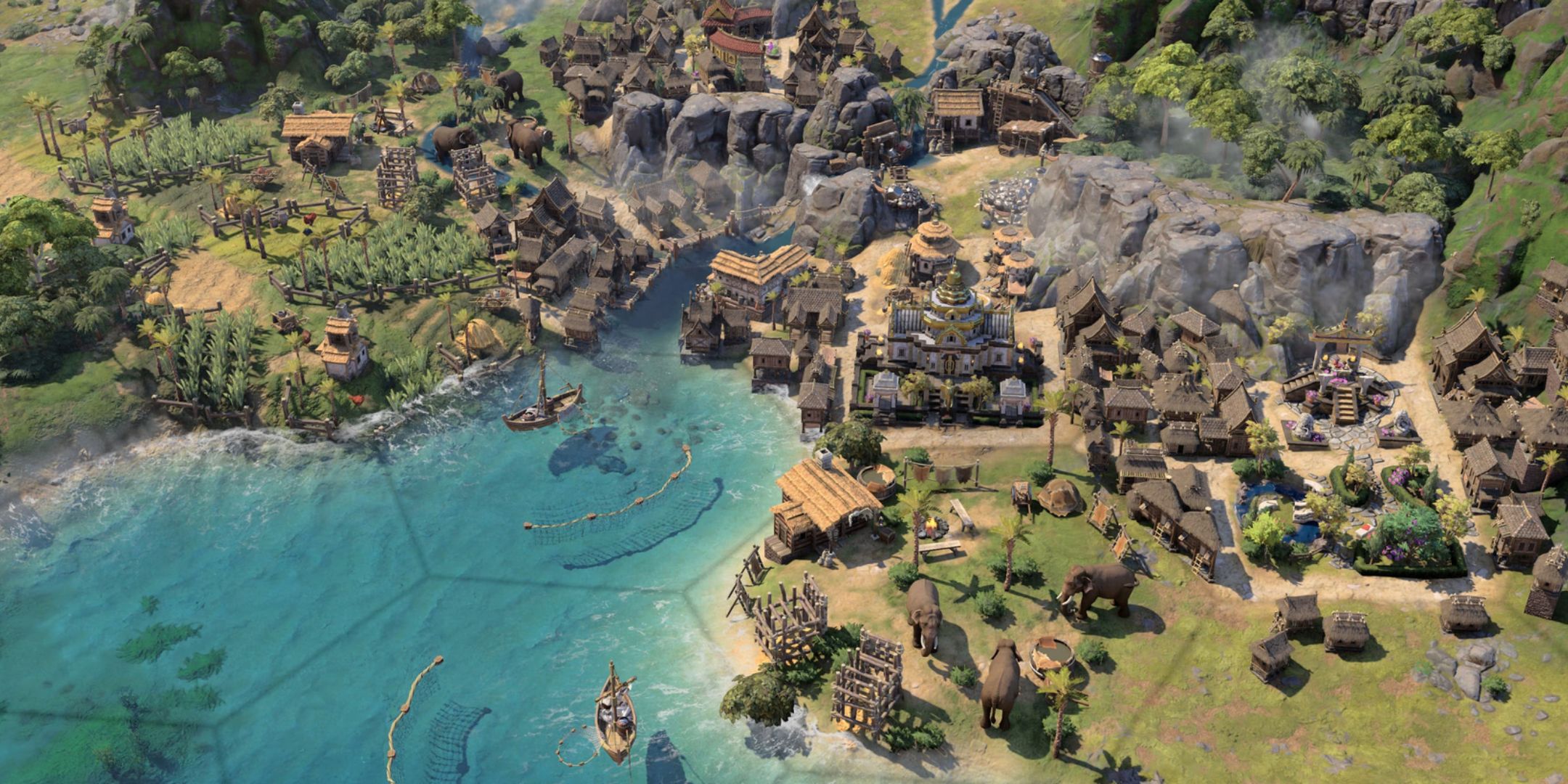

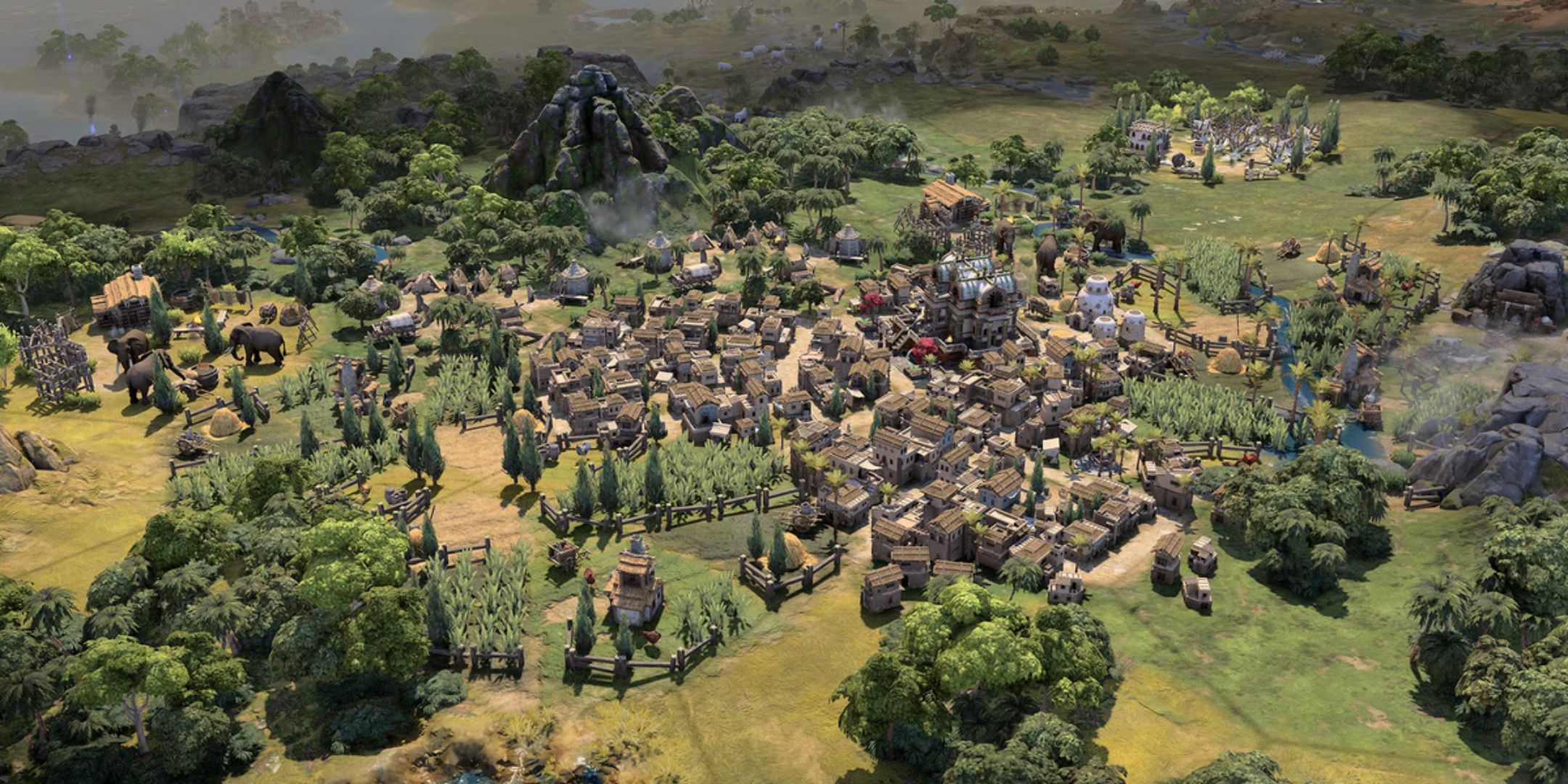
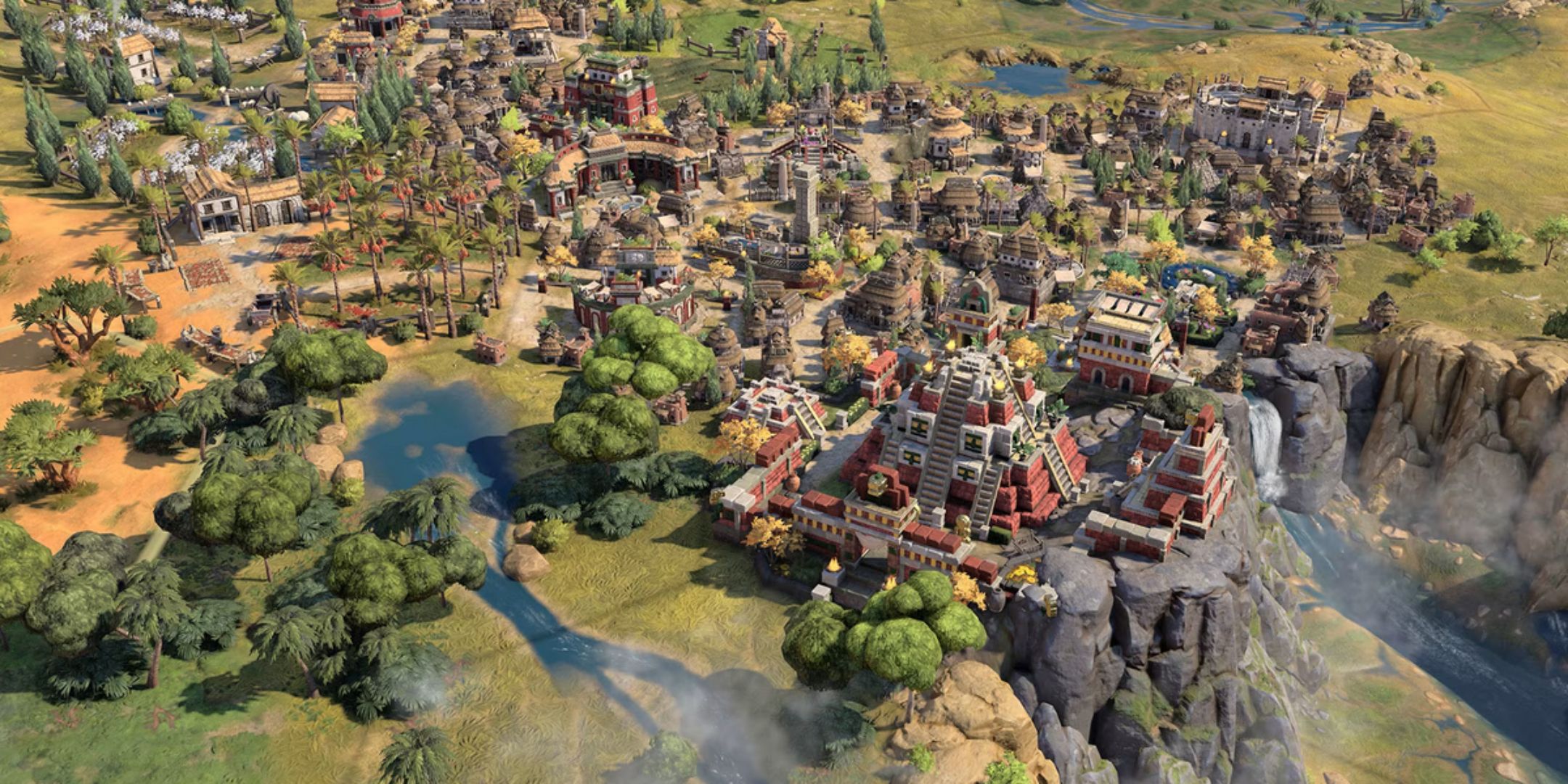
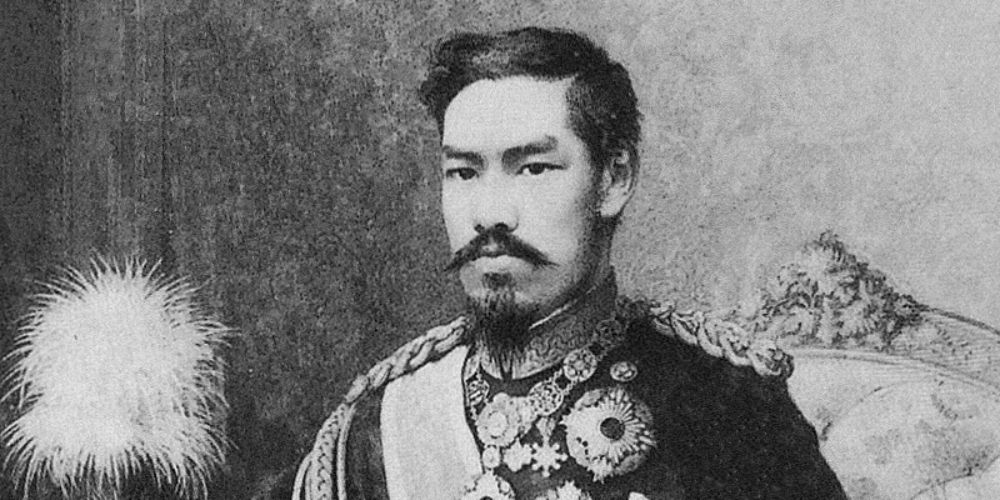
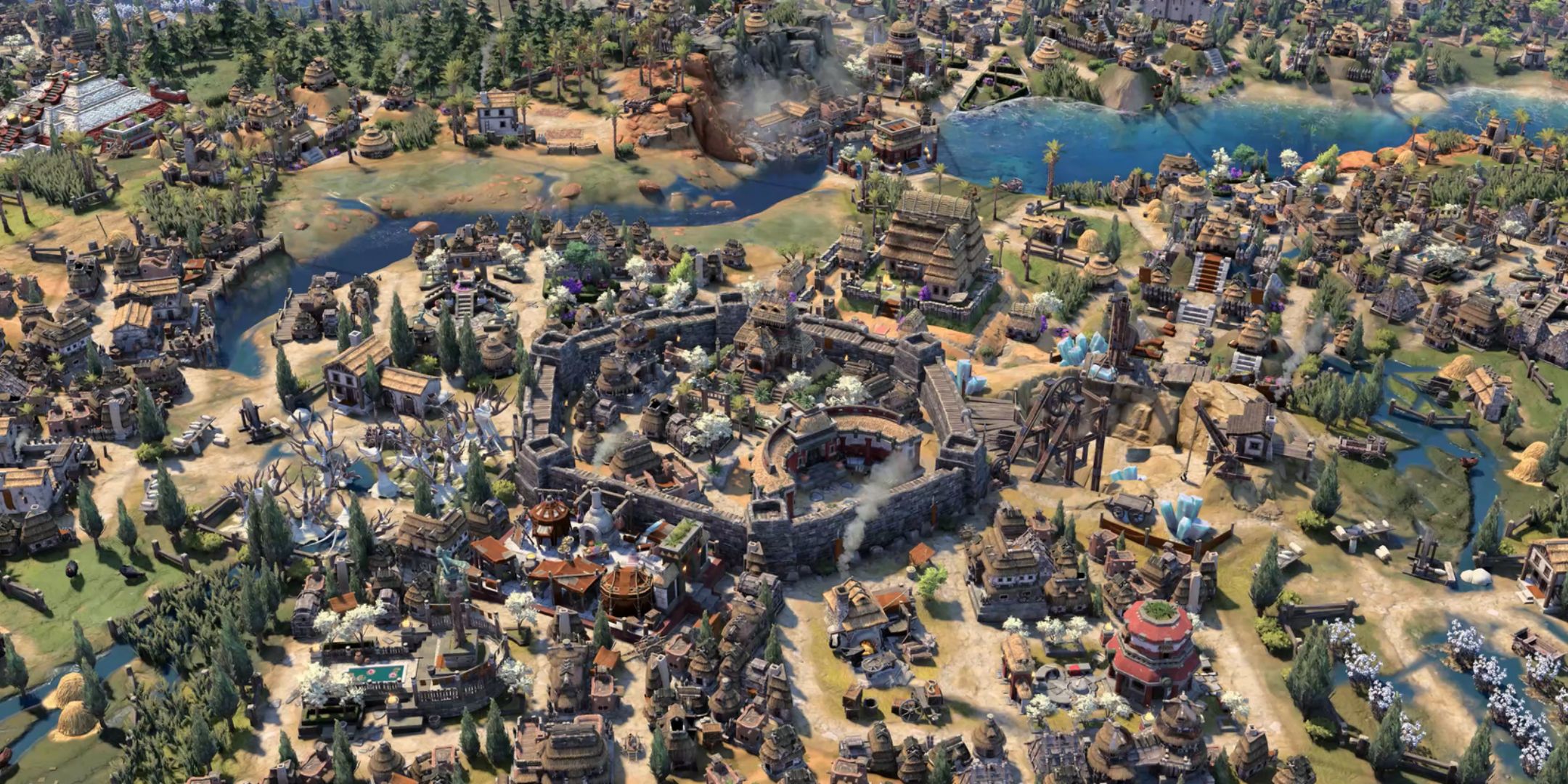






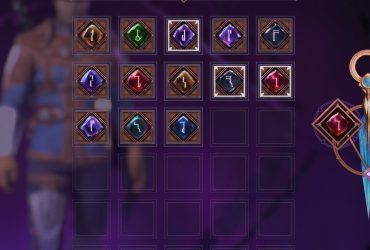
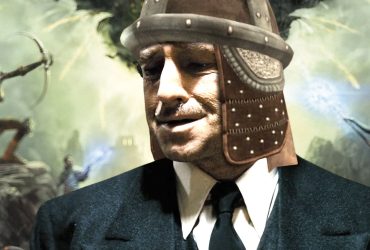


Leave a Reply